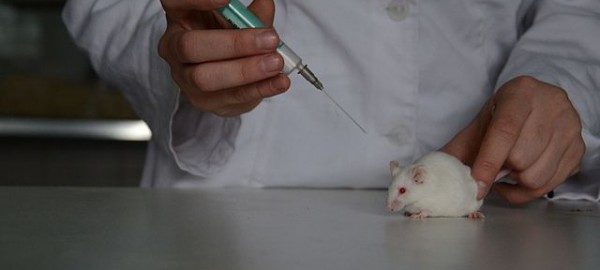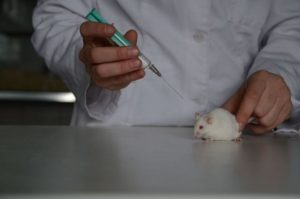Stem Cell Research Shows How Mice Recovered From Stroke, Dementia

A new UCLA stem cell research recently showed evidence of recovery from stroke and dementia via a study in mice.

Medical Xpress reported that the study specified that a one-time injection of an experimental stem cell treatment could repair brain damage and enhance memory function in mice with conditions that imitate human strokes and dementia.
Dementia can emerge from several conditions, and its characterized by a range of some symptoms which include problems with memory, focus, physical coordination, and communication.
The two most typical causes of dementia are white matter stroke and Alzheimer’s disease. White matter strokes are small strokes that build up in the brain’s connecting areas.
According to the study’s senior author, Dr. S. Thomas Carmichael, who’s also interim director of the Eli and Edythe Broad Center of Regenerative Medicine and Stem Cell Research at UCLA, what they found is a “vicious cycle,” explaining that the said two most common dementia causes are nearly always observed together and each one is accelerating the other.
Approximately five million Americans are suffering from dementia, the senior author added and continued explaining that, with an aging population, that figure is going to shoot up.
Glial Cell Treatment
Presently, there are no treatments that can stop the progression of white matter strokes or improving the limited ability of the brain to repair itself following their occurrence.
The new study entitled “Patient-derived glial enriched progenitors repair functional deficits due to white matter stroke and vascular dementia in rodents,” published in Science Translational Medicine, identifies a cell therapy that prevents the progressive impairment caused by the illness and triggers the own repair processes of the brain.
The cells used, in the treatment, as specified in the research, are a specialized type of glial cells, cells surrounding and supporting neurons in the central nervous system.
Carmichael, together with his collaborators, analyzed the impacts of their glial cell treatment by injecting it into the brains of mice with brain impairment akin to that observed in humans in the early to middle dementia stages.
The paper’s first author, Dr. Irene Llorente, also an assistant research professor of neurology at the David Geffen School of Medicine at UCLA said, upon injection, their cell treatment traveled to impaired sites of the brain and unseen chemicals known as growth factors that triggered the stem cells of the brain to launch a repair response.
Stem Cell Research Findings
Triggering the said repair process does not just limit the progression of damage. It also improved the formation of new neural links and increased the production of myelin, a fatty substance that’s covering and protecting the connections.
According to the National Institute of Neurological Disorders and Stroke program director Francesca Bosetti, understanding the function glia does in repairing white matter damage is a critically essential area of research that needs exploration.
These initial results suggest that glial cell-based treatments may one day help fight the white matter damage that many strokes and vascular dementia patients experience each year.
The treatment was developed in collaboration with UCLA Molecular, Cell and Development Biology professor Billy Lowry.
The research group used an approach discovered before by Lowry, for rapidly producing large numbers of glial cells by treating human-induced pluripotent stem cells consisting of a drug identified as deferoxamine.
Induced pluripotent stem cells resulting from skin or blood cells that have been programmed back to a developing stem cell-like state from which researchers can develop a limitless supply of any type of cell.
To date, the team is conducting the additional research required to apply for permission from the Food and Drug Administration (FDA) to test the treatment in a clinical trial in humans.
Credit: The Science Times, Maria Morales https://www.sciencetimes.com/articles/30797/20210421/stem-cell-research-shows-mice-recovered-stroke-dementia.htm


